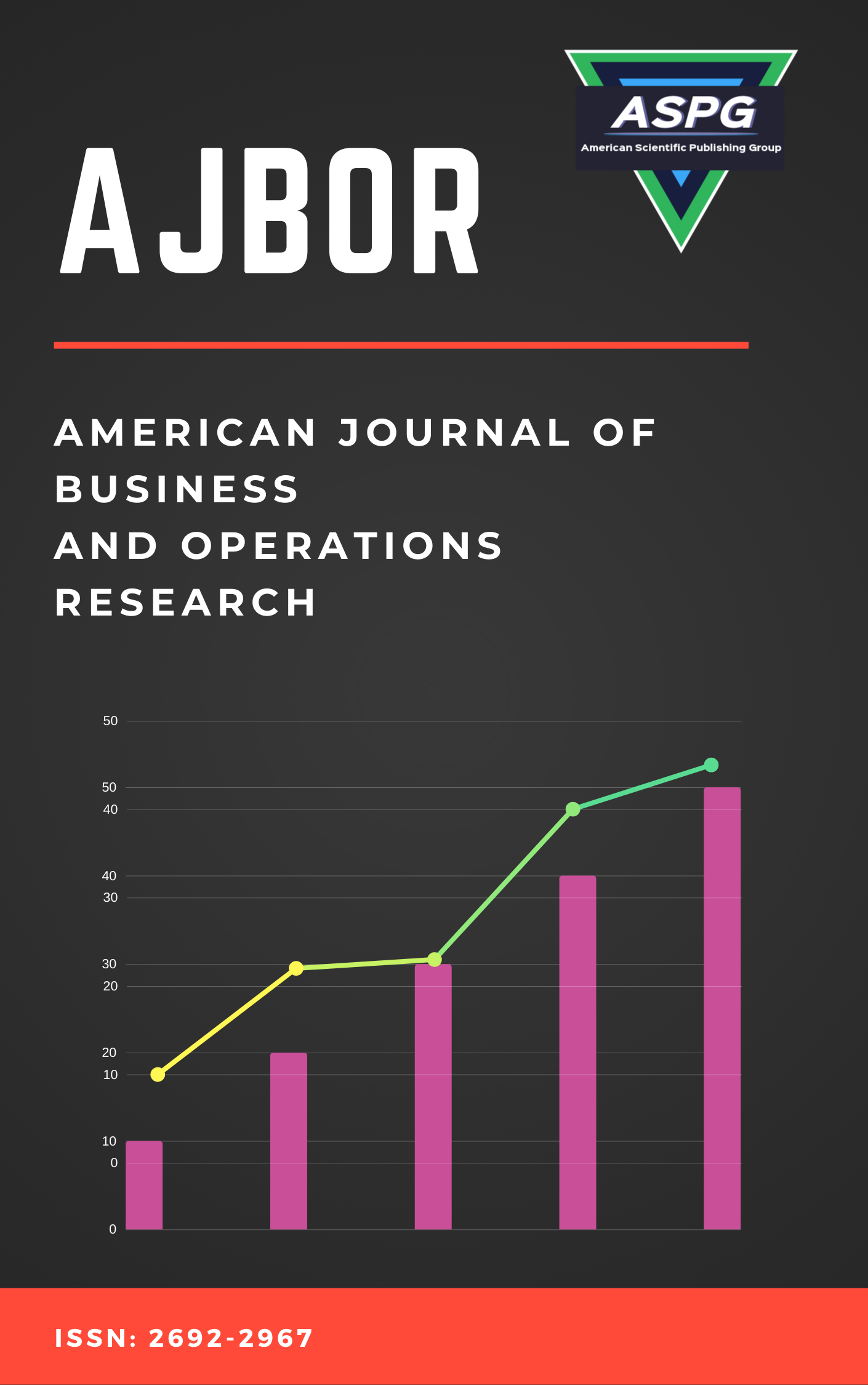

The implementation of ERP projects is a specific case of information system projects that require modifying pre-produced software according to the condition specified for an organization to fulfill particular benefits. ERP systems adoption is a complicated, lengthy, risky, and costly process for all sizes of organizations that usually faces critical failures and challenges. Especially for SMEs with limited capabilities and resources, they lack the experience of requirement specification and ERP implementation. This failure could be costly and may cause corporate bankruptcy. This study proposes a Risk Diagnosing Methodology for implementing ERP projects in SMEs (RDMERP). The proposed methodology is systematic and a global road to proactively identify, assess, analyze, and treat the various risks associated with any ERP implementation through all the phases for protecting the SMEs’ assets and mission and meeting the ERP project objectives.
Read MoreDoi: https://doi.org/10.54216/AJBOR.020101
Vol. 2 Issue. 1 PP. 39-50, (2021)
This study has examined the direct effect of Big Five Factors of personality (BFF) which include (Neuroticism, Agreeableness, Extraversion, Conscientiousness, and Openness to Experience) on Compulsive Buying (CB). Besides, examining the mediating effect of Consumer Negative Emotions (CNE) in the relationship between Big Five Factors of personality (BFF) and Compulsive Buying (CB). The questionnaire for the study was adapted from earlier established scales and measures which were based on five points Likert Scale. The study was concentrated on shopping malls’ customers in North Delta (Egypt). The study used a sample size of 384 and data was collected randomly using systematic random sampling. 314 questionnaires were valid for statistical analysis and free of missing data were retrieved with a response rate of 81.7%. Smart PLS-SEM3 software was used for data analysis. The results showed that there is a significant positive effect of Neuroticism on compulsive buying. While the results indicated that Extraversion has a significant negative effect on compulsive buying. Also, the results found that Conscientiousness has a significant negative effect on compulsive buying. While Agreeableness and Openness to Experience hadn’t had any effect on compulsive buying. As for the mediating effect of Consumer Negative Emotions, the results mentioned that Consumer Negative Emotions has a partial mediation in the relationship between Neuroticism, Extraversion, and Conscientiousness, and Compulsive Buying. While Consumer Negative Emotions fully mediated the relationship between Openness to Experience and Compulsive Buying. But there was no mediation for Consumer Negative Emotions in the relationship between Agreeableness and Compulsive Buying.
Read MoreDoi: https://doi.org/10.54216/AJBOR.020102
Vol. 2 Issue. 1 PP. 5-23, (2021)
Machine learning arose from the increasing ability of machines to handle large amounts of data over the last two decades, and some machines could also identify hidden patterns and complicated associations that humans couldn't, allowing them to make rational and precise decisions, especially for disruptive and discontinuous data. In several areas of decision-making, machines could produce more reliable outcomes than humans and have already begun to replace them. Machine learning, which is widely recognized as a breakthrough technology, has recently made significant progress in improving supply chain management processes and efficiency. From planning to delivery, machine learning may be applied at different stages of the supply chain management process. Machine learning types are supervised, unsupervised, reinforcement. Each type has many tools which are discussed below in detail. This paper presents a detailed survey on machine learning techniques for supply chain management including supply chain and supply chain management interpretation, machine learning definition, its types, and some algorithms that belong to it.
Read MoreDoi: https://doi.org/10.54216/AJBOR.020103
Vol. 2 Issue. 1 PP. 24-38, (2021)
Financial risk assessment becomes a hot research topic among financial firms or companies to assess the financial status and thereby avoid future crises. Earlier studies have focused on statistical models for the assessment of financial risks and the recently developed machine learning (ML) models find useful to improve the assessment performance. In this aspect, this study introduces a novel Butterfly Optimization based Feature Selection with Classification Model for Financial Risk Assessment (BOFS-CFRA) technique. The proposed BOFS-CFRA technique involves pre-processing at the primary stage to get rid of unwanted data. In addition, K-means clustering approach is developed to group the financial data into clusters. Then, the BOFS technique is applied to choose the subset of features from the clustered data. Finally, the classification of financial risks takes place by the use of functional link neural network (FLNN). In order to ensure the enhanced performance of the BOFS-CFRA technique, a series of simulations were carried out and the results are inspected under various measures. The simulation outcome portrayed the supremacy of the BOFS-CFRA technique over the other financial risk assessment models in terms of several performance measures.
Read MoreDoi: https://doi.org/10.54216/AJBOR.020104
Vol. 2 Issue. 1 PP. 51-64, (2021)
In today's highly competitive business environment, companies are increasingly focusing on enhancing customer satisfaction to improve customer loyalty and drive business growth. In this context, the use of data-driven approaches can provide valuable insights for companies to improve their service quality and customer experience. This paper presents a case study in service operations management, where a data-driven approach is used to enhance customer satisfaction. We employ a dataset of customer feedback from a service company and proposes a deep learning (DL) algorithm learn to identify the factors that affect customer satisfaction. The results show that the proposed data-driven approach is effective in identifying the key drivers of customer satisfaction and in providing actionable insights for service improvement. We highlight the potential of our DL approach for enhancing customer satisfaction and provides insights for service companies to improve their customer experience based on the analysis of customer feedback.
Read MoreDoi: https://doi.org/10.54216/AJBOR.020105
Vol. 2 Issue. 1 PP. 65-72, (2021)